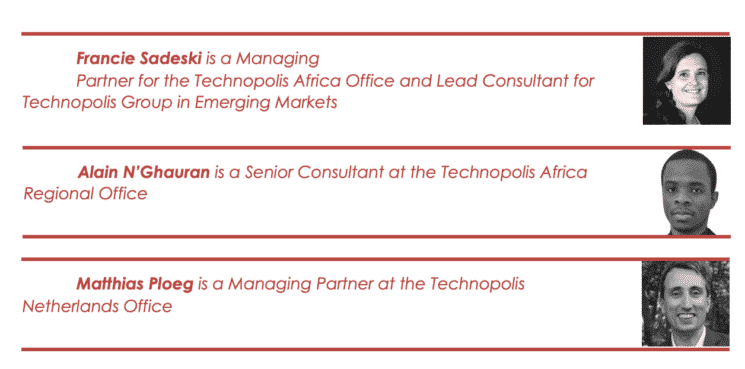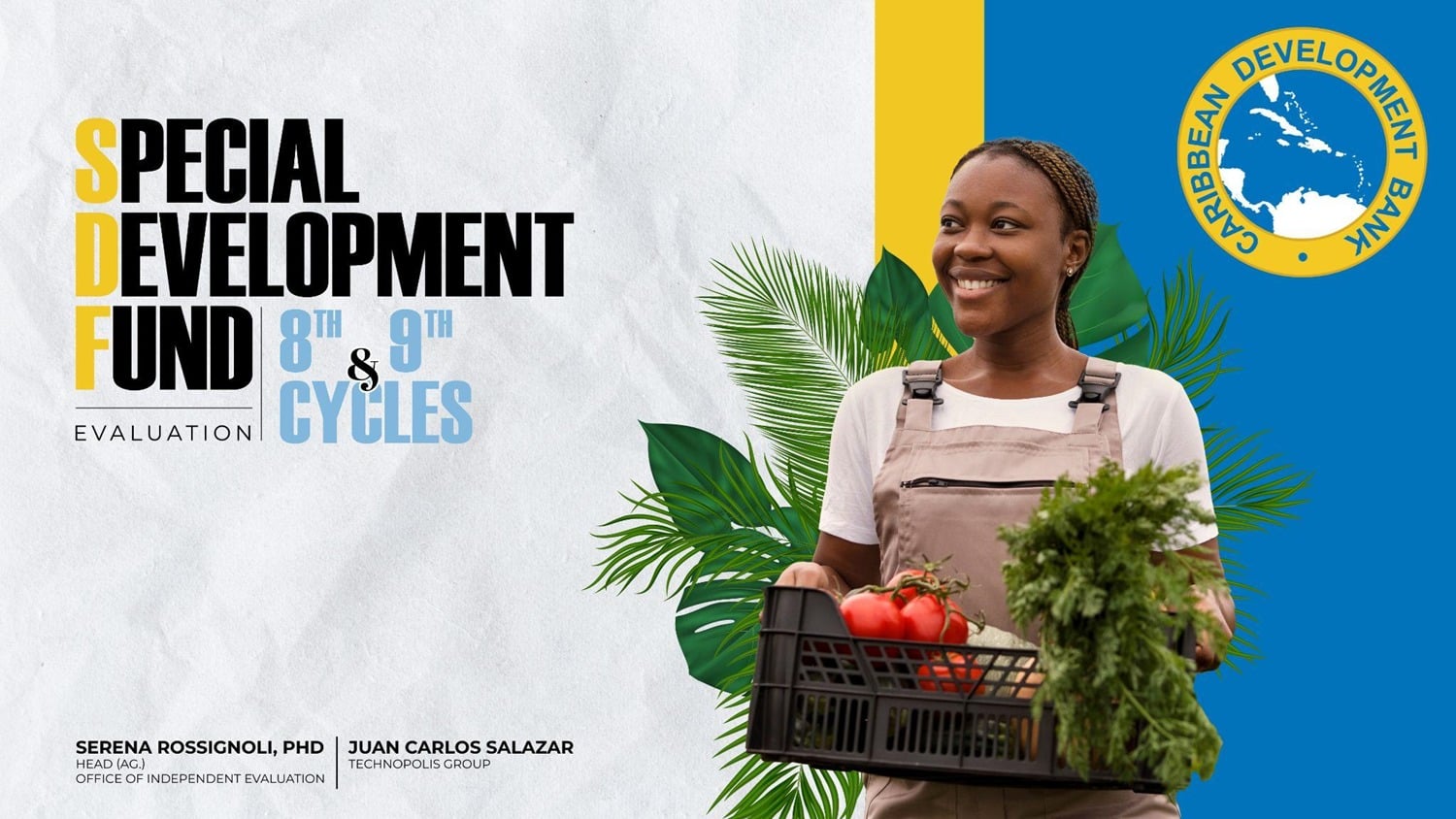Many of the critical challenges that we face today, such as climate change, poverty and inequality, are global issues with complex interlinkages. Continents, countries and regions are connected socially, ecologically and financially. Government policies and programmes to address these issues therefore increasingly include an international dimension. Technopolis Group’s work in developing countries and emerging markets ranges from promoting educational and scientific excellence, development of national innovation systems and entrepreneurship framework conditions, and sustainable and circular value chains.
Looking back on recent trends
In this article, we review recent trends in emerging markets and international development with three key experts of Technopolis. While doing so we touch upon the methods that they applied as a response to these trends, the transmissible lessons that they learned, and we identify upcoming challenges and opportunities stakeholders in developing countries may face.

Have you recognized recent policy trends (in the last 1 to 2 years) in the field of emerging markets?
Francie: What I undoubtedly notice is that there is an increased general awareness of the role of Science, Technology and Innovation (STI) as a means to promote sustainable human and economic development. The business case for the role of STI in development has been proven in both literature and reality. As a result, over the past decade, STI has become a priority on the agenda of many countries, donors and international- or multilateral development institutions. However, due to the COVID-19 pandemic, much of the international development aid was redirected to emergency crisis programs. This temporarily led to fewer development programs that included STI. Nevertheless, more recently we see that STI regained its prominence as a major theme in international development alongside higher education, digitalisation and job for youth. Additionally, the policy advisory playing field in emerging markets is now much more favouring local expertise if not requiring local expertise only.
Alain: In Africa, job opportunities are currently on the top of the agenda. The focus on human capital development is not only focused on academia but also vocational education. Furthermore, both private sector development and fostering entrepreneurship play an important role in promoting and creating job opportunities. For many African countries, due to the young demographics, these themes play a vital role.
Matthias: Returning to STI, I feel that the playing field surrounding this theme in the global context has become more strategic. Whereas the field used to be quite a-political, nowadays discussions on innovation and technologies often touch upon issues such as sovereignty and strategic autonomy. This is exemplified by the recently launched Global Gateway, a strategic plan to support infrastructure development across the world, where the EU urges the recipient countries to respect European norms and standards including human rights and the rule of law. Furthermore, the strategic approach goes hand in hand with mission-driven projects (e.g. SDG-focussed programmes) in the field of international development. Another noticeable trend is the growth of technology and the role venture capital plays in stimulating this technological progress. This consequently leads to supporting playing fields in many emerging markets where the surrounding ecosystems provide boosts for entrepreneurs.
As a result of these trends, have the types of requests of clients changed?
Francie: We realise that Technopolis Group cannot only be a company that publishes studies and reports. Nowadays, policymakers are asking a wider range of questions in their requests. There is an increased need to disseminate knowledge and include all stakeholders (public organisations, private intermediary organisations, private firms, etc) in projects, which leads to projects with bigger scopes. For instance, the types of requests nowadays include managing knowledge platforms, hosting large events, facilitating knowledge transfer and providing policy support and advice for the governments on how to develop roadmaps or multi-annual plans.
Alain: With respect to human capital, the types of requests focus on improving local research capacity. There are plenty of young PhDs and older experienced researchers in Africa. However, to truly establish a high-quality research sector while also countering a potential brain drain, clients aim to strengthen local research communities, through for example setting up academic exchange programs. Regarding private sector development, in Africa, the topic is getting more and more important, and policymakers are now strongly looking for guidance on how to support capacity building of young entrepreneurs and the scaling up of local SMEs through – for example – incubators.
Matthias: In addition to the aforementioned, I can think of three developments. First of all, we are increasingly more being requested to assess the second-order effects of policies instead of merely the direct outcomes. In other words, more requests are concerned with impact assessment. Second, where our assignments used to adopt a funder-beneficiary perspective, requests are now more developed from an equal-partners perspective. A great development if you ask me. Lastly, there is even more attention to confidentiality: how do we organize our data, how can we adhere to the GDPR-guidelines, and – maybe most significantly – how can we remain independent?
Can you indicate if and how you developed or adopted new methodologies as a response to these requests?
Matthias: As we have always acted from an impartial position, the requests concerning independence did not pose any particular challenge for us. We have however put extra effort into advancing our impact assessment methodologies, both quantitative (web-scraping, policy document-impact tracking) and qualitative (storytelling, qualitative comparative analysis). Next to that, we have worked hard on new ways to involve stakeholders in our methods, for example through online consultant workshops.
Francie: Moreover, our communication agency Arctik, responds to requests for knowledge dissemination and stakeholder involvement. The in-house capacity to contribute to different aspects of integrated projects is a great asset to have.
How would you envision the role of Technopolis in the field of international development and how is this related to the development and policy trends?
Alain: I think Technopolis Group has considerable experience on the policy side of international development programmes, rather than on the operational side. We are qualified to set up and evaluate policies of programmes that aim to support the development of future entrepreneurs. Yet, since requests are shifting to integrated projects, we are now developing our expertise on the operational aspects of these supporting programmes in the field of entrepreneurs.
Matthias: I was once part of a working committee on international development comprised of policymakers from several countries. Many of these policymakers come and go as the years go by. Thus, at one point, I was the longest-serving ‘member’ on the committee. This shows that we bring certain knowledge and expertise to the table that others do not possess, as we work and have worked extensively with different stakeholders in various regional, national and international contexts. Think of the time and effort we have invested in methodologies and employees, in over 3000 projects.
With our investment in Arctik, we specifically invested in our duty to share the findings of our research to the public, which I feel is of great importance considering that we work on projects with a public cause. In line with that, the fact that we do not have a stake in the project is a great asset.
Are there noteworthy developments that you foresee in the upcoming year(s)? Are there specific focus areas that will come higher or lower on the agenda in emerging markets?
Francie: The start-up scene is flourishing. Venture capital in emerging markets has been sky-rocketing recently. I expect that it will also lead to more (policy) support for start-ups (as exemplified by several countries drafting this year’s start-up Act). These developments will probably touch upon the more operational and practical side of policy programmes (e.g., efficient governments, excellence centres, higher education, value chains and clusters approaches). In addition, digitalisation will also be an overarching topic. Governments and the private sector increasingly deem digitalisation to be vital. There is still lots of work to be done here, as many countries need to build up their digital capacity.
Alain: I agree that the theme digital will get even higher on the agenda of many policymakers, as it impacts all other focus areas. There are plenty of examples of countries that can trigger economic growth by leapfrogging to new digital technologies. We currently see many policies that are set out to support digital start-ups or promote entrepreneurs that work digitally. Notwithstanding, all focus areas of Technopolis will remain relevant for African policymakers. Health is already quite developed in Africa, so I think our largest growth might lie in Human Capital and Higher Education. Helping young Africans develop their capacities will provide perspective and create job opportunities for the local population.
Matthias: I side with Alain that human capital is highly important for emerging markets. However, it is in and by itself always a long term investment, making it harder to ‘sell’ for policymakers. As a consequence, I consider many innovation projects as human capital projects ‘in disguise’. And with good reason: even if an innovation is not successful, it often generates entrepreneurial or technological capabilities for people, which subsequently can foster sustainable economic development. Other than that, I don’t think new focus areas are likely to emerge in the coming years. Partly because the capacity to invest remains very weak in many countries. I expect that Technology is a field that will continue to be of increasing importance, while Innovation and Digital will remain on the agenda as well.
Would you like to know more about our work and ideas on emerging markets? Feel free to reach out to one of our experts or read more of our articles.






